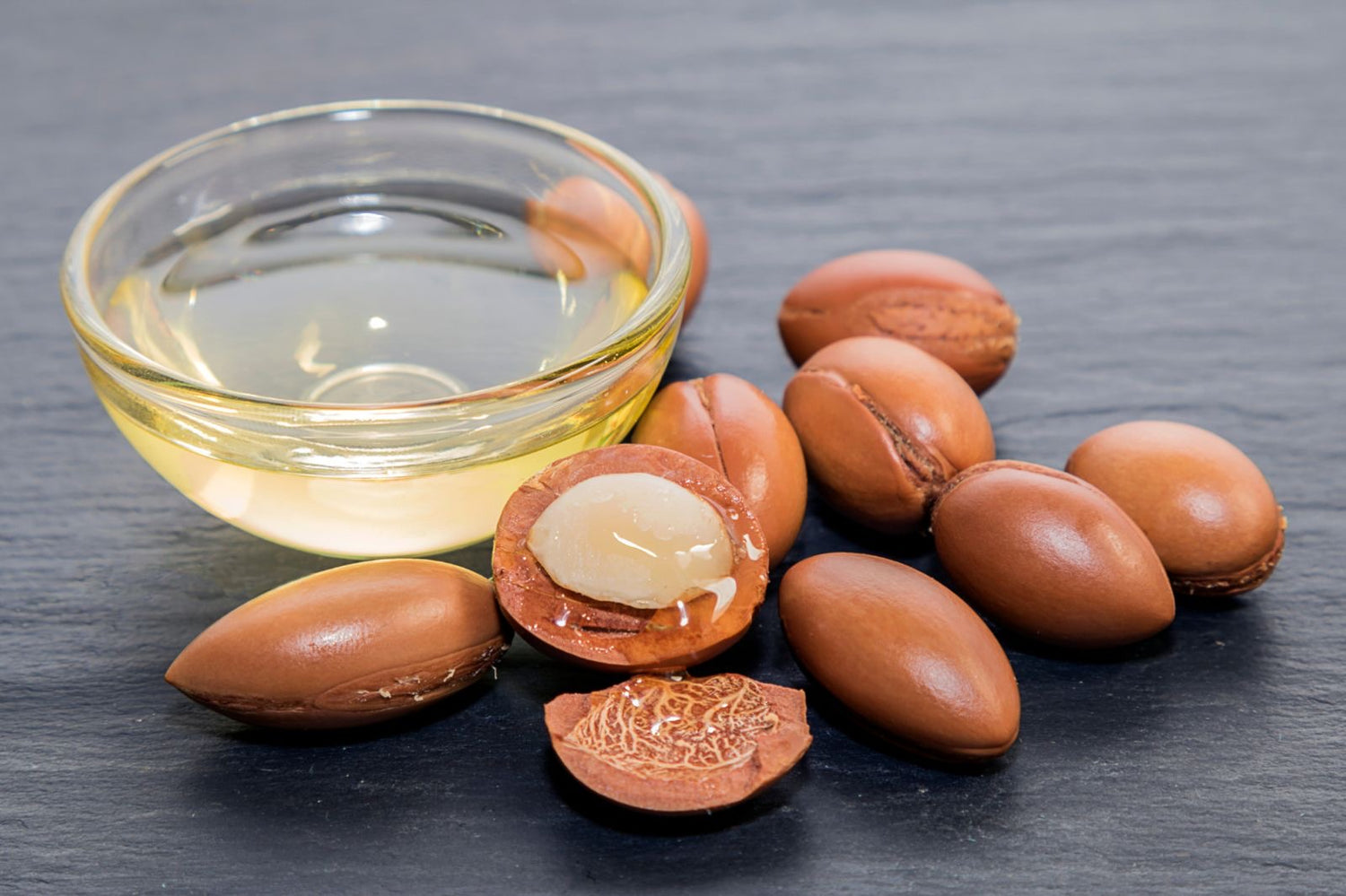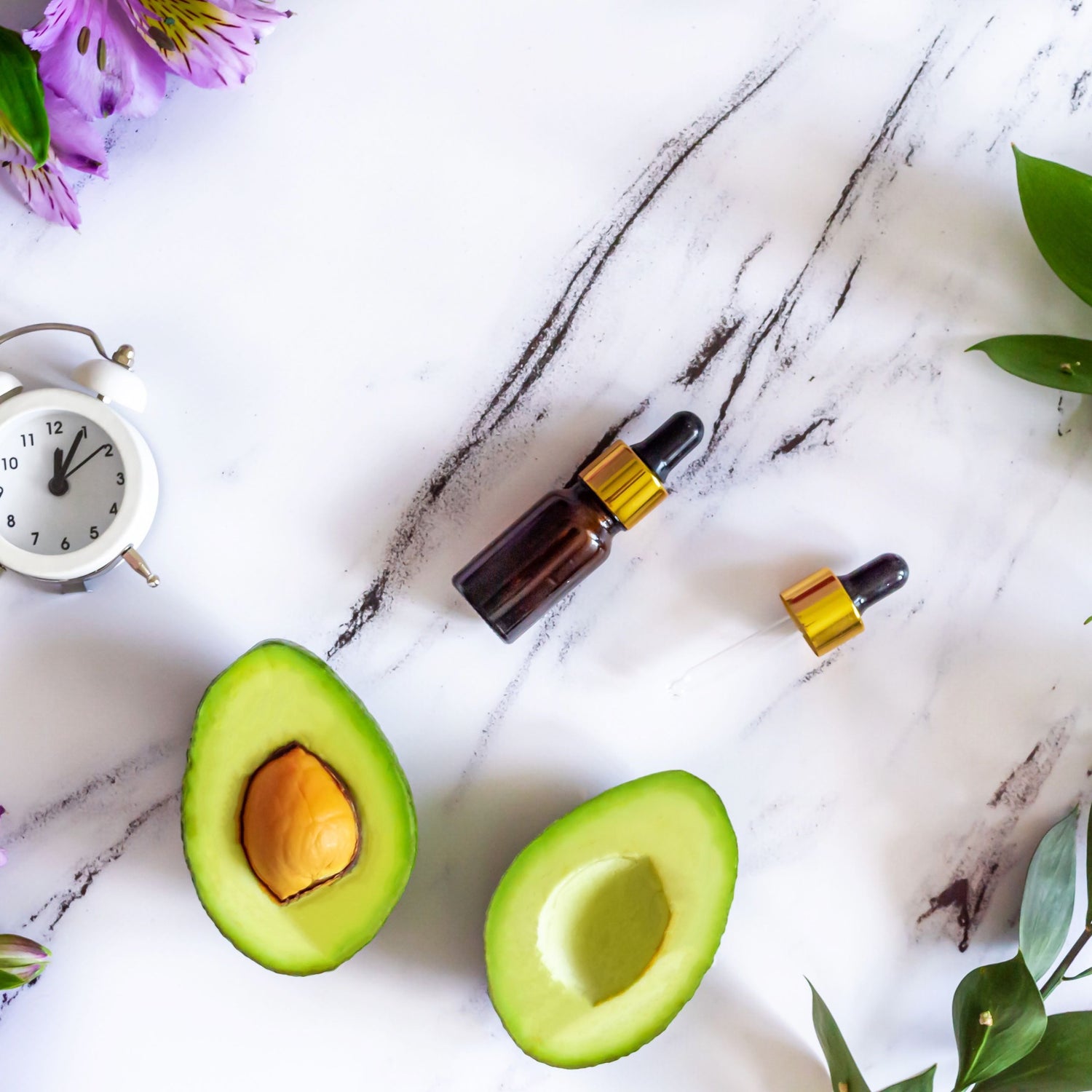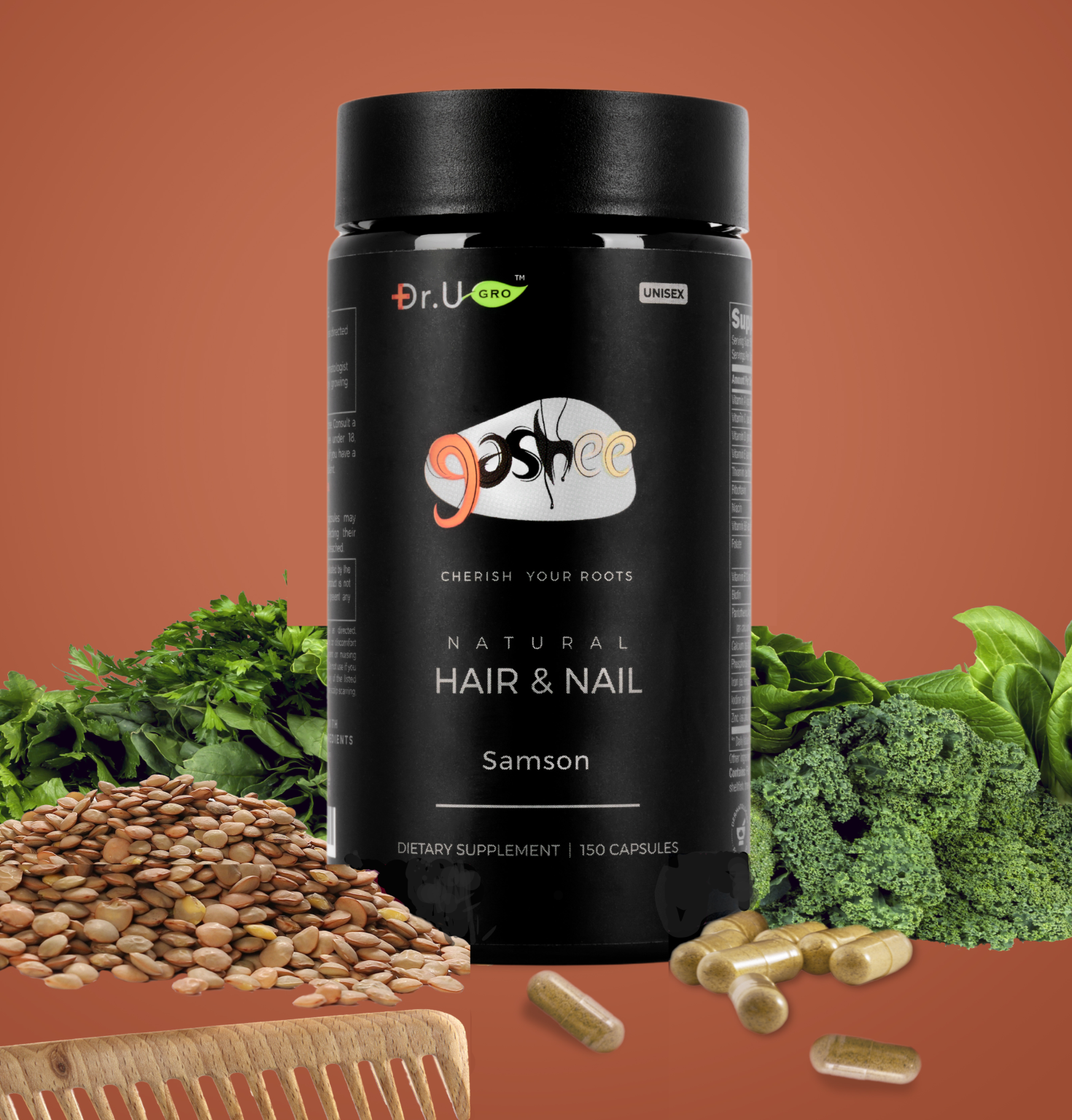These days, the word collagen seems to be on everyone’s minds when it comes to antiaging. Most people understand this protein to be integral for younger-looking skin. A lesser-known fact is that it is also essential for the wellness and vitality of your hair and nails. Yet the formation of healthy, normal collagen rests upon the presence of certain amino acids. One of these is hydroxylysine which comprises 1% of the weight of collagen tissue. It is also only found in elastin. Due to the findings of various studies, scientists now believe that the presence of hydroxylysine is a leading factor responsible for the vibrant qualities of youthful-looking skin.
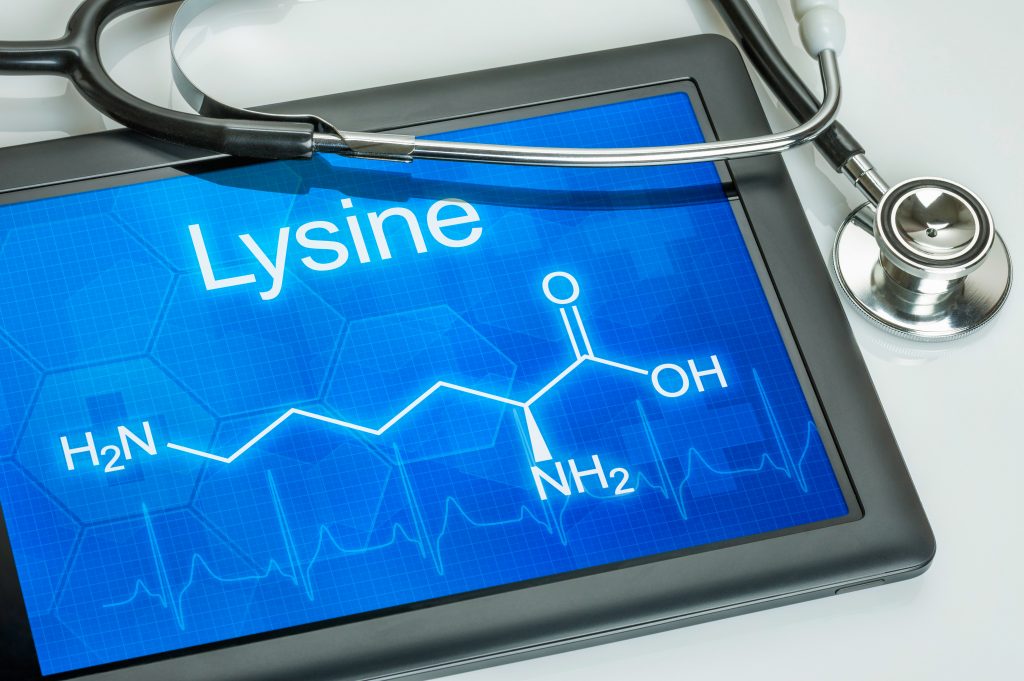
Lysine is a precursor amino acid for collagen synthesis which is important in supporting hair growth
The Origins of Lysine and Hydroxylysine for Healthy Collagen
Hydroxylysine is available in supplement form. However, the body can also create it from a dietary amino acid called lysine. The starting point of lysine undergoes oxidation using an enzyme called hydroxylase. This process yields the final end-product known as hydroxylysine. Lysine is synthesized by the body. However, there are food sources of lysine including avocado, eggs, milk, broccoli, beans, and chia seed.
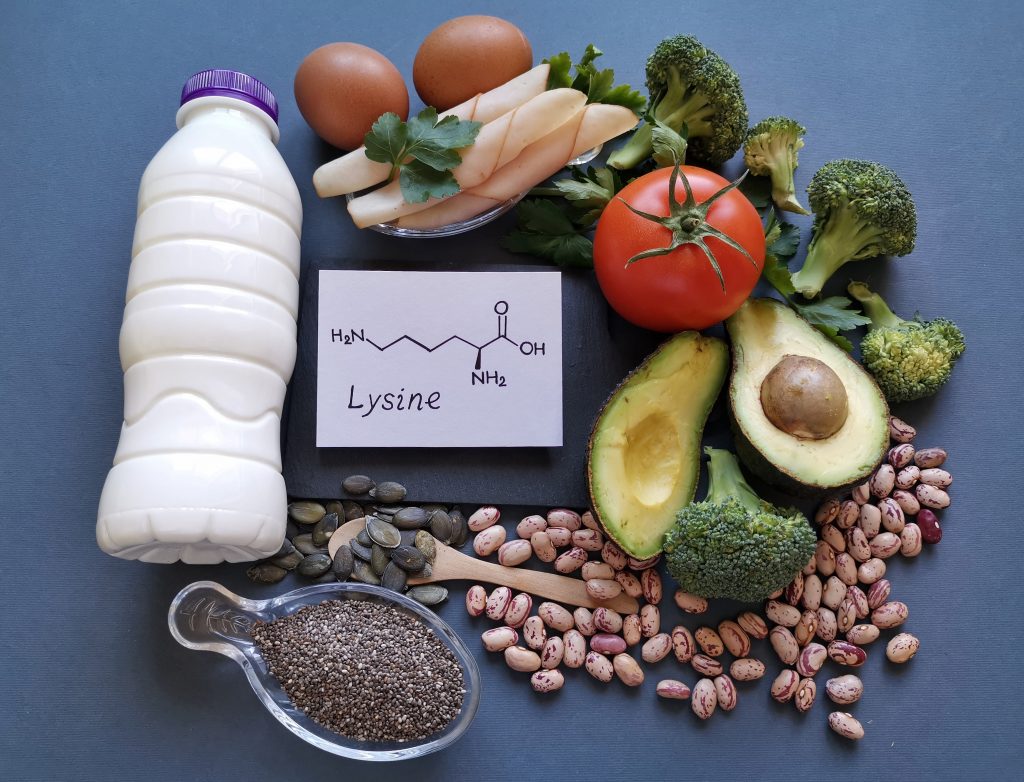
Lysine-rich foods with the structural chemical formula of lysine. Natural food sources of proteins. High protein food products: avocado, eggs, milk, broccoli, beans, chia seed
Hydroxylysine, An Amino Acid Only Found In Collagen
Researchers found that hydroxylysine and another amino acid hydroxyproline can only be found in the collagen tissue of mammals. These discoveries led to a new hypothesis that they are responsible for the desired qualities of firmness and elasticity of our skin’s collagen. Human skin biopsies, for example, revealed the presence of both hydroxylysine and hydroxyproline [5]. Researchers determined the changes they noted in collagen to alterations of these two amino acids.
Can Hydroxylysine Be Supplemented To Produce Collagen?
Several groups of researchers were interested in tracking the pathway of lysine in rats and its process of constructing the hydroxylysine found in collagen tissue. The rats were fed a traceable form of lysine (i.e. carbon-14). After a certain period of time, their collagen was studied. The researchers found that hydroxylysine with the carbon-14 had indeed been produced in the final tissue. A group of scientists were curious to see if hydroxylysine could be supplemented, or if it could only be produced through the conversion of lysine. According to their findings, the supplemented synthetic hydroxylysine was not found in the skin’s collagen. They concluded that this amino acid could only be produced by the body. A different team discovered the exact opposite findings. They also traced the pathway of lysine in a control group of rats. For their test group, they fed large quantities of synthetic hydroxylysine. These scientists were able to find the supplemented hydroxylysine in the final collagen tissue. Unlike the previous study noted, these results were contingent on the amount of the HLY fed [6]. When exogenous hydroxylysine and lysine are both present as starting points, the excess HLY has the tendency to reduce the conversion of lysine (i.e. into final hydroxylysine) in the final collagen tissue. This more recent research study confirms that it is, in fact, possible to administer hydroxylysine as a supplement which can then be incorporated by the body into collagen. Without a doubt, the integrity of our skin’s collagen is vital to a youthful appearance and the health of our hair and nails. Researchers have found that supplementation is indeed a viable approach for upgrading and renewing the firmness and texture of this protein tissue. Hydroxylysine is necessary for helping to achieve the skin quality we most desire from these types of efforts. This can be provided through the oral intake of thoughtfully designed supplements which take into account the natural needs of our bodies.

Youthful skin is due to the state of our collagen. An amino acid known as hydroxylysine may be a key factor.
Understanding the Basics of Collagen
Collagen tissue is made of 19 types of amino acids to form long fibrils (i.e. fibers). Additionally, there are 29 types of collagen protein which are found in the body. The most common are collagen I, II and III. Collagen type I is the most abundant. It is found in the bones, ligaments and tendons. In the skin, it is responsible for its firmness, strength, youthfulness and elasticity. Collagen II is only found in cartilage. Collagen III is usually found alongside collagen I in the skin. Additionally, it comprises our blood vessels and internal organs. So why does it even matter to understand these basic categories? Collagen supplement manufacturers will often note specific collagen types on the labeling of their products. This information matters for the individual objectives of consumers.
Does Collagen Matter For Your Skin?

The firmness of youthful skin may be due to hydroxylysine which is only found in collagen.
The appearance of older looking skin is largely due to the declining condition of collagen fibers. Now, more than ever, consumers are interested in taking collagen supplements as a way to fight this tendency. Now, more than ever, consumers are hoping to renew their own skin collagen by taking supplements. In 2018, the market for collagen supplements supplements was valued at $46.6 million, representing an increase of over 34% from 2017. Collagen powders are being included in the preparation of many types of foods such as baked goods, protein bars, creamers, teas, coffee and even smoothies, macaroons and tacos. But does this supplementation actually work? The answer to this question rests upon the understanding that ingesting mammalian collagen will actually not replace our own. Due to its fibrous nature, our digestive tract is not able to break this large, complex protein down into easily-absorbed, bioavailable end products which can produce improvements for the skin. Supplement manufacturers are not blind to this phenomenon. To help overcome this issue, they use proprietary processes to break down the long amino acid chains of collagen into sub-units. These are usually referred to as collagen peptides or collagen hydrolysates, consisting of small groups of amino acids. These resulting byproducts are more easily absorbed by the body.
How Do Collagen Supplements Improve Our Skin?
The smaller collagen peptide units can be used by the body as starting points to construct new collagen and other proteins needed by the body, according to Patricia Farris MD, the clinical associate professor of dermatology at Tulane University’s School of Medicine in New Orleans. However, she also introduces two new beneficial concepts that most of us are not aware of.
- The collagen peptides from dietary supplements bind to receptors on fibroblast cells (i.e. the cells which manufacture our skin’s collagen) to produce brand new collagen tissue in the dermis.
- The collagen peptides of supplements act as antioxidants to protect our existing skin collagen from the oxidative damage responsible for the signs of premature aging.
Dr. Farris also notes that we are not always able to exert control over the benefits we wish to attain from taking collagen supplements. If we take these products for our skin, for example, our bodies may allocate these peptides to other areas, depending on need or priority.
Research on Collagen Supplementation and Youthful Skin
So, are there any actual studies which show that taking collagen supplements can actually help our skin look and feel younger? Skeptics may be surprised to find that supportive research does, in fact, exist. However, at this time, the number of published controlled experiments are still relatively limited. In one study, scientists tested the effect of dietary collagen hydrolysate products on the aging signs of skin. They first noted two types of collagen peptides naturally circulating in our blood.
- Prolyl - hydroxyproline (Pro-Hyp)
- Hydroxyprolyl - glycine (Hyp- Gly)
They also designed studies to test the skin rejuvenating effects of consuming these peptides as supplements. The researchers found that the peptides stimulated dermal fibroblasts which enhanced the proliferation of new collagen [1]. Secondly, they also discovered that the skin’s fibroblasts started to increase their production of hyaluronic acid. At the end, the noted significant improvements in the following areas:
- wrinkles
- elasticity
- roughness
- skin moisture
The researchers tested the use of different quantity levels and discovered that these outcomes were contingent on the amounts of both collagen peptides used. In a separate publication, a bioactive collagen peptide (BCP) was consumed by subjects so that researchers could observe their effects on the production of new dermal tissue and superficial eye wrinkles. The results showed a significant increase in the production of the following skin proteins.
- fibrillin - 6%
- elastin - 18%
- procollagen type 1 - 65%
They also noted a vast improvement in the depth of fine lines around the eyes of the subjects [2]. In a third study, subjects consumed oral collagen as a beverage [3]. The authors of this study acknowledged that previous studies on collagen supplements and skin aging focused on a narrow range of parameters, namely
- free radical damage
- collagen decline
They were interested in examining other markers of aging in the skin. These included:
- cell behavior
- DNA repair
- protein folding
These researchers discovered the following areas of improvement:
- production of new extracellular matrix proteins
- boost in mitochondrial activity
- renewed protein folding (i.e. gene expression)
- DNA repair
With respect to the issue of free radicals, they determined the leading cause as being due to the effects of UVA rays from the sun. The collagen supplementation was able to neutralize this form of damage.
Why Collagen Matters For Healthy, Shiny Hair

Our hair follicles need collagen for both structural integrity and a nourishing surrounding tissue environment.
Collagen is the protein tissue which makes up your hair follicle structures. It is also present in their surrounding tissue environment and may even influence the start of the anagen hair cycle phase. Researchers discovered notable changes in the thickness and characteristics of the collagen outside the hair follicles, once they became ready to start growing hair, following their non-growth resting stage. Hydrolyzed collagen is a source of the building blocks needed to make proline, an important component of the keratin which makes up our hair shafts [4].
Collagen and Your Nails

Collagen is needed for us to produce healthy forms of keratin which comprise our nails.
Believe in or not, your hair and nails are made of the same keratin protein fibers. So why do they visually appear so different? The answer has to do with how the keratin fibers are arranged to produce uniquely different shapes and surfaces.
The Origins of Hydroxylysine for Healthy Collagen
Hydroxylysine is available in supplement form. However, the body can also create it from a dietary amino acid called lysine. The starting point of lysine undergoes oxidation using an enzyme called hydroxylase. This process yields the final end-product known as hydroxylysine.
Hydroxylysine, An Amino Acid Only Found In Collagen
Researchers found that hydroxylysine and another amino acid hydroxyproline can only be found in the collagen tissue of mammals. These discoveries led to a new hypothesis that they are responsible for the desired qualities of firmness and elasticity of our skin’s collagen. Human skin biopsies, for example, revealed the presence of both hydroxylysine and hydroxyproline [5]. Researchers determined the changes they noted in collagen to alterations of these two amino acids.
Can Hydroxylysine Be Supplemented To Produce Collagen?
Several groups of researchers were interested in tracking the pathway of lysine in rats and its process of constructing the hydroxylysine found in collagen tissue. The rats were fed a traceable form of lysine (i.e. carbon-14). After a certain period of time, their collagen was studied. The researchers found that hydroxylysine with the carbon-14 had indeed been produced in the final tissue. A group of scientists were curious to see if hydroxylysine could be supplemented, or if it could only be produced through the conversion of lysine. According to their findings, the supplemented synthetic hydroxylysine was not found in the skin’s collagen. They concluded that this amino acid could only be produced by the body. A different team discovered the exact opposite findings. They also traced the pathway of lysine in a control group of rats. For their test group, they fed large quantities of synthetic hydroxylysine. These scientists were able to find the supplemented hydroxylysine in the final collagen tissue. Unlike the previous study noted, these results were contingent on the amount of the HLY fed [6]. When exogenous hydroxylysine and lysine are both present as starting points, the excess HLY has the tendency to reduce the conversion of lysine (i.e. into final hydroxylysine) in the final collagen tissue. This more recent research study confirms that it is, in fact, possible to administer hydroxylysine as a supplement which can then be incorporated by the body into collagen. Without a doubt, the integrity of our skin’s collagen is vital to a youthful appearance and the health of our hair and nails. Researchers have found that supplementation is indeed a viable approach for upgrading and renewing the firmness and texture of this protein tissue. Hydroxylysine is necessary for helping to achieve the skin quality we most desire from these types of efforts. This can be provided through the oral intake of thoughtfully designed supplements which take into account the natural needs of our bodies.
Frequently Asked Questions - Hydroxylysine
Is hydroxylysine also present in elastin?
Elastin is not made of hydroxylysine. While it does have small traces of hydroxyproline, these levels are much less than collagen. And thus, the existence of hydroxylysine is virtually exclusive to our collagen’s tissue, rendering it as vital for the inherent look and feel that we most want for our skin.
I am interested in supplementing my diet with hydroxylysine. At what age should I start taking collagen supplements for my skin?
For most people, collagen levels in the skin start to decline in their 20’s, making this an optimal time to begin taking collagen and/or hydroxylysine supplements. However, genetics and other factors like sun exposure should also be taken into account. And so, lifestyle improvements should also accompany the intake of externally sourced supplementation.
Should I be worried about any potential side effects associated with hydroxylysine?
Although this amino acid is considered to be natural, any form of supplementation carries the potential for incurring unwanted side effects, especially when taken excessively. L-Hydroxylysine, in particular, may cause irritation, skin rashes and other unknown effects. Your primary physician would have the best understanding of your overall health profile and the most appropriate intake levels for your needs.
References
[1] Inoue N, Sugihara F, Wang X. Ingestion of bioactive collagen hydrolysates enhance facial skin moisture and elasticity and reduce facial ageing signs in a randomised double-blind placebo-controlled clinical study. J Sci Food Agric. 2016 Sep;96(12):4077-81
[2] Proksch E, Schunck M, Zague V, Segger D, Degwert J, Oesser S. Oral intake of specific bioactive collagen peptides reduces skin wrinkles and increases dermal matrix synthesis. Skin Pharmacol Physiol. 2014;27(3):113-9
[3] Ping Lin, Nan Hua, Yu-Chen Hsu, et. al "Oral Collagen Drink for Antiaging: Antioxidation, Facilitation of the Increase of Collagen Synthesis, and Improvement of Protein Folding and DNA Repair in Human Skin Fibroblasts", Oxidative Medicine and Cellular Longevity, vol. 2020, Article ID 8031795, 9 pages, 2020.
[4] Yang, Fei-Chi et al. “The structure of people's hair.” PeerJ vol. 2 e619. 14 Oct. 2014,
[5] Blumenkrantz N, Ullman S, Asboe-Hansen G. Parallel studies on collagen hydroxyproline and hydroxylysine in human skin biopsies. Acta Derm Venereol. 1976;56(2):93-8
[6] Piez, K. and R. C. Likins. “The conversion of lysine to hydroxylysine and its relation to the biosynthesis of collagen in several tissues of the rat.” The Journal of biological chemistry 229 1 (1957): 101-9


